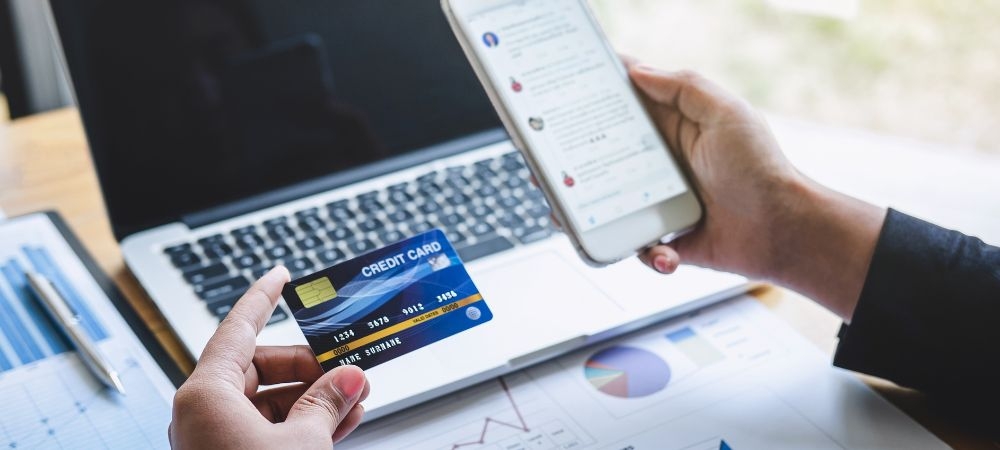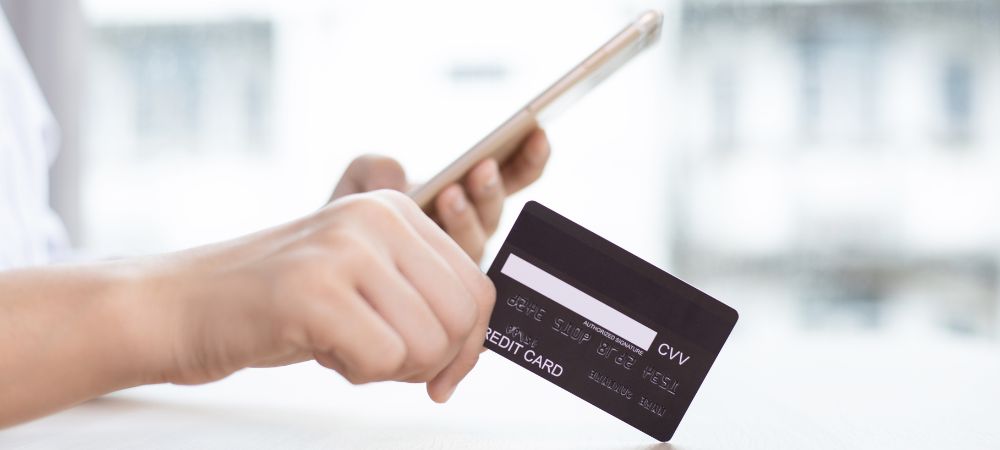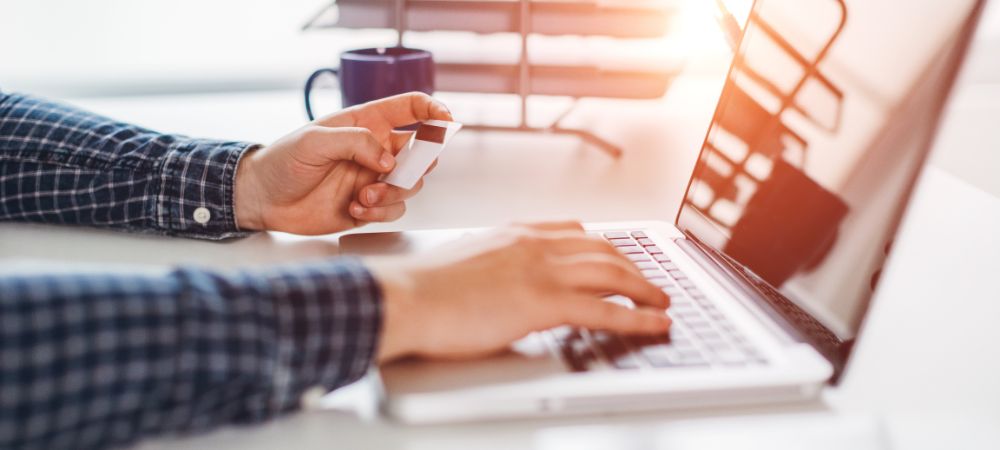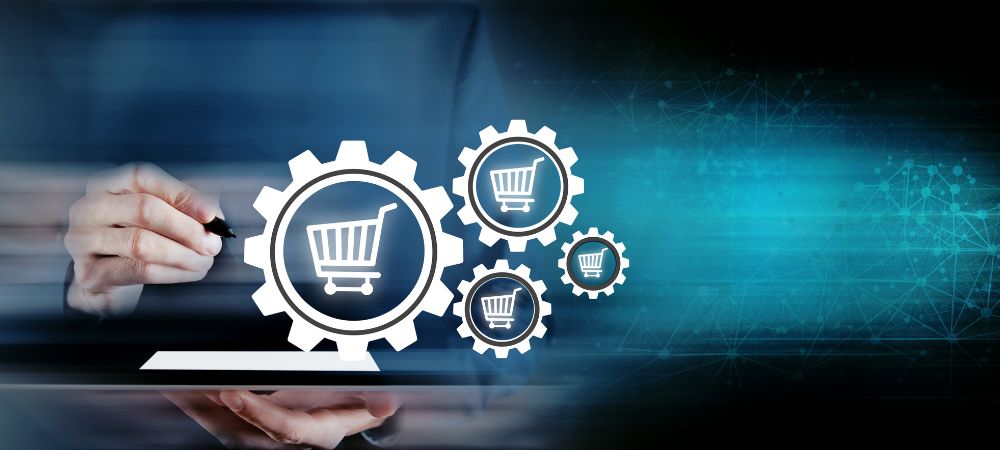

Oh, the importance of secure websites! It's something many people don't think about until it's too late. In today's digital world, we spend so much time online – shopping, banking, communicating. Get the inside story see this. But how often do we stop and consider if the website we're using is actually secure? Probably not often enough.
First off, let's talk about why secure websites are crucial. If a site isn't secure, your personal information could be at risk. Imagine entering your credit card details on a non-secure website – yikes! You'd be basically handing over your private info to potential cyber criminals on a silver platter. And trust me, you don't want that.
But wait, there's more! Get access to additional information check this. Not only can insecure websites compromise your data, but they can also spread malware to your device. Yep, just by visiting an unsafe site, you could end up with all kinds of nasty stuff on your computer or phone. It's like inviting bugs into your home - nobody wants that!
Now let's get into some specifics here. One way to tell if a website is secure is by looking for "https" in the URL instead of just "http". The "s" stands for "secure", and it means that any info you send through that site is encrypted. Encryption makes it harder for hackers to steal your data because they can't easily read it.
Another thing to look out for is a padlock symbol in the address bar. If you see this little icon next to the URL, it means the website has an SSL certificate – another layer of security ensuring that your data stays private between you and the site you're interacting with.
But hey, I'm not saying these indicators guarantee 100% safety all the time. Even sites with HTTPS and SSL certificates can be compromised occasionally; nothing's foolproof after all! However, using such sites significantly reduces risks compared to those without these security features.
And don't forget about updating software regularly as part of maintaining security measures when browsing online-it might seem tedious sometimes but believe me-it goes a long way toward keeping things safe!
So remember folks: always check for https:// in URLs before entering sensitive information anywhere online-even if everything looks legit otherwise-because better safe than sorry right?
In conclusion (phew!), understanding why securing our web activities matters helps us make smarter choices while surfing internet waves daily-and who doesn't wanna feel safer doing what they love?
In today's digital age, having a strong password is, without a doubt, one of the most crucial security measures you can take. It's baffling how many people still use "123456" or "password" as their go-to choice! I'm not saying everyone should be a cybersecurity expert, but c'mon, we gotta do better than that. Let's dive into some practical and simple tips for creating passwords that are actually secure.
First off, don't ever use easily guessable information like your name or birthdate. That's just asking for trouble. Hackers have tools to sift through these common choices in mere seconds. So what should you do? Mix it up! Use a combination of uppercase letters, lowercase letters, numbers, and special characters. Something like "Pa$$w0rd!" might seem over-the-top to some folks but trust me-it's worth it.
Length matters too. Short passwords are easier to crack; it's as simple as that. Aim for at least 12 characters if possible. The longer your password is, the more complex it becomes for hackers to break through using brute force attacks. You might think that's excessive but imagine the hassle of dealing with stolen accounts!
Another tip: don't reuse passwords across different sites and services. It's tempting because keeping track of multiple passwords can be a real pain in the neck-but resist the urge! If one account gets compromised and you've reused that password elsewhere, you're basically giving hackers free rein over multiple aspects of your digital life.
And here's something you probably didn't consider: avoid using whole words found in dictionaries even if they're foreign languages or slang terms. Hackers have databases specifically designed to run dictionary attacks where they try out all possible word combinations until they hit pay dirt.
Oh boy-one last thing I can't stress enough-use multi-factor authentication (MFA) whenever it's available! Having an extra layer of security by requiring something beyond just your password makes unauthorized access significantly harder.
So there you have it-a few straightforward steps to make sure your passwords aren't low-hanging fruit for cybercriminals. Remembering these guidelines isn't rocket science but implementing them could save you from headaches down the line.
Cyber Monday, which follows Black Friday, was developed in 2005 to motivate on-line purchasing, quickly becoming one of the biggest online buying days of the year.
In the United States, roughly 20% of retail sales take place during the holiday, emphasizing the significance of this period for the retail industry.
Browsing isn't simply a leisure activity; research studies show it can really improve state of mind and supply inspiration for future acquisitions without the prompt stress to spend cash.
Retail therapy is genuine; psycho therapists recognize that buying can launch dopamine, potentially raising the spirits of the shopper.
Finding hidden discounts online can feel like a treasure hunt, but it's one that's definitely worth the effort.. One of the most overlooked ways to uncover these secret deals is to negotiate with online chat support.

Posted by on 2024-07-07
In today’s digital age, shopping online has become the norm for many of us.. It’s convenient, fast, and often cheaper than traditional retail shopping.

Posted by on 2024-07-07
Shopping online has become a common part of our daily lives.. But, with the convenience comes risks too.

Posted by on 2024-07-07
Two-Factor Authentication (2FA) ain't exactly new, but it's become kinda essential in today's digital age. It's one of those security measures that really makes you feel a bit more secure when you're logging into your online accounts. What's 2FA all about? Well, it's like having two locks on your door instead of just one.
First off, let me say this-passwords alone aren't enough these days. Just think for a second how many times you've heard about some massive data breach where millions of passwords got stolen. It's scary! So, that's where 2FA steps in to save the day. With 2FA, even if someone gets ahold of your password, they still can't get into your account without the second factor.
Now, what are these "factors" I'm talking about? The first factor is usually something you know-like your password or PIN code. The second factor is something you have or something you are. For example, it could be a text message sent to your phone with a special code you need to enter after typing in your password. Or maybe it's an app like Google Authenticator that gives you a constantly changing set of numbers to use as an extra layer of protection.
But let's not pretend everything's perfect with 2FA either. Sometimes it's kind of a hassle, right? I mean, who hasn't been annoyed when they're trying to log in quickly and then realize they have to wait for that text message or open up an authentication app? It's not always convenient especially if you're in hurry or don't have good cell service.
And hey, let's also remember that no system is completely foolproof. There've been instances where hackers managed to intercept those text messages or trick people into giving up their codes through phishing attacks. But still, I'd say 2FA makes things way harder for the bad guys compared to just using passwords alone.
In conclusion-oh boy-I guess what I'm trying to say here is that while Two-Factor Authentication isn't perfect and can sometimes be annoying as heck, it does provide an additional layer of security that's super important nowadays. So yeah, next time you see that option pop up asking if you'd like to enable 2FA on one of your accounts-just go ahead and do it! You won't regret adding that extra shield around your personal information.


Oh boy, phishing scams. We've all heard about them, but do we really know how to spot 'em? Recognizing and avoiding phishing scams is crucial in today's digital age where cybercriminals are always lurking around the corner. It's not just about protecting yourself; it's also about safeguarding your personal information and financial assets.
First off, let's talk about recognizing these pesky scams. You'd think it's easy, right? But sometimes, they're so cleverly disguised that even the savviest of us can be fooled. One telltale sign is poor grammar or spelling mistakes in emails or messages-y'know, those odd little errors that just don't sit right. Another red flag is when you receive an unsolicited email asking for personal info or passwords. Reputable companies won't ask for sensitive info like this via email.
Then there's the issue of links and attachments-oh man, those can get tricky! If you hover over a link and it looks sketchy or doesn't match the supposed sender's website, don't click it! Just don't! Attachments from unknown sources? Avoid them like the plague. It's better to be safe than sorry.
Now onto avoiding these traps altogether. It's not rocket science, but it does require some vigilance. Always have updated antivirus software; yeah, I know it's a hassle but trust me on this one. Also, enable two-factor authentication wherever possible-it adds an extra layer of security that's hard for scammers to bypass.
Another thing: never share your personal information willy-nilly online. The less data you give out freely, the harder it'll be for someone to scam you. And if something feels off-trust your gut! Scammers often try to create a sense of urgency ("Act now!" "Your account will be closed!") Don't fall for it!
Lastly-and I can't stress this enough-educate yourself and others around you about these dangers. The more aware everyone is, the fewer victims there'll be.
In conclusion (yeah, I said it), recognizing and avoiding phishing scams isn't impossible-it just takes some awareness and caution on our part. So stay alert folks; after all it's not like we're living in a utopia where everyone's got good intentions!
Keeping software updated is one of those security measures that might seem like a no-brainer, yet it's surprising how often it's neglected. I mean, who hasn't ignored an update notification thinking, "I'll do it later"? But here's the kicker: not keeping software up-to-date can seriously jeopardize your security.
First off, let's talk about why updates are even necessary. Software developers aren't just sitting around twiddling their thumbs. They're constantly working to fix bugs and patch vulnerabilities that hackers could exploit. When you don't install updates, you're essentially leaving your digital front door wide open for cybercriminals to stroll right in.
Now, some people might argue that updates are annoying - and hey, they're not entirely wrong. Sometimes they pop up at the most inconvenient times or take forever to install. But consider this: would you rather deal with a minor inconvenience now or a major security breach later? It's really a no-brainer if you think about it.
Moreover, it's not just about fixing what's broken; updates also often come with new features that enhance performance and usability. So by skipping them, you're also missing out on improvements that could make your life easier.
But wait! Let's address another common excuse: "My device runs perfectly fine without updates." Oh boy, that's where you're wrong! Just because you haven't faced any issues yet doesn't mean you're safe from potential threats lurking around the corner. Cyber threats evolve rapidly, and what was secure yesterday might not be secure today.
One more thing – automatic updates are your best friend here. Most modern devices offer this feature which means you don't have to remember to check for updates manually. It's like having a personal assistant who takes care of this mundane but crucial task for you.
However, there are cases where automatic updates aren't enabled by default or they're turned off due to various reasons (maybe someone thought they'd save bandwidth or avoid disruptions). Go ahead and double-check those settings!
In conclusion – oh gosh – keeping software updated isn't something we should take lightly. It's an essential part of maintaining your digital hygiene and protecting yourself from potential cyber threats. So next time an update notification pops up? Don't hit “remind me later”; go ahead and get it done! Your future self will thank you for it.
Monitoring financial statements regularly is crucial when it comes to security measures, but people often overlook its importance. I can't stress enough how vital this practice is for any organization aiming to safeguard its assets and maintain financial health. Neglecting this could lead to a series of unfortunate events that no one wants to face.
Firstly, you might think it's a tedious task – oh boy, you're not alone in that! Many believe that once the yearly audit is done, they're all set. But that's not true at all. Financial statements need constant scrutiny because they provide insights into the company's performance and highlight any discrepancies or irregularities early on.
Now, some folks say "why bother with all these numbers?" Well, those numbers are telling you a story every single day. If someone's embezzling funds or if there's an unexpected drop in revenue, you'll catch that only if you're keeping an eye on your financial statements regularly. It's like having a smoke alarm; you wouldn't want to find out too late when everything's already up in flames.
We can't ignore the fact that cyber threats are real and increasing by the day. Hackers don't sleep; they're always looking for vulnerabilities. By monitoring your financials frequently, you can spot unauthorized transactions before they snowball into bigger problems. Imagine waking up one morning to find significant amounts missing from your accounts just because nobody bothered checking regularly – that's a nightmare!
Moreover, regular monitoring helps in complying with regulations and avoiding hefty fines or legal issues down the road. Regulatory bodies require companies to maintain transparent records of their financial activities. Not doing so could land you in hot water faster than you'd think.
But hey, let's not forget about internal fraud either! Employees might be tempted to commit fraud if they see gaps in monitoring processes. Regular checks act as a deterrent against such malpractices because everyone knows there's always someone watching over those books.
In conclusion, while it may seem like an additional chore at first glance, monitoring financial statements regularly is non-negotiable for maintaining robust security measures within any organization. It uncovers red flags early on and protects against both external threats and internal deceitful behaviors. So don't make the mistake of thinking this isn't necessary – it absolutely is!
Using secure payment methods is, like, super important these days. You know, with all the cyber threats and whatnot, people ought to be more cautious. It's not like the old times when you would just hand over cash and call it a day. Now there's so many ways your information can get stolen if you're not careful.
First off, let's talk about credit cards. They're pretty safe-if you use them right. Most companies have fraud protection and all that jazz. But man, if someone gets hold of your number? Yikes! That can lead to a whole bunch of headaches nobody wants to deal with.
Then there's PayPal and other online wallets. Oh boy, aren't they convenient? Not having to enter your card details every time you buy something is a blessing for sure! But don't think for one second that they're foolproof either. Always enable two-factor authentication (2FA). If you're not doing that already, seriously, what's stopping you?
Cryptocurrencies are also getting popular as a payment method. They sound kinda fancy but are they really secure? Well, yes and no. Transactions are encrypted but once they're gone-they're gone! There's no central authority to help you out if things go south.
Speaking of 2FA earlier-it cannot be stressed enough how crucial this is across all platforms where payments happen. Seriously guys, don't ignore this step! A simple text message or an app prompt could save you from losing heaps of money.
And don't forget about using secure networks too! Public Wi-Fi might seem harmless but it's actually quite risky for transactions. If you're at a café sipping on some latte while shopping online-just stop right there! Wait until you're home on your own network before making any purchases.
It's also worth mentioning that checking statements regularly can help catch unauthorized transactions early on. No one's got time for endless disputes with banks or vendors because they missed something fishy going on in their accounts.
In conclusion folks-using secure payment methods isn't rocket science but it does require some vigilance. Be smart about how you manage your financial info online; after all it's better safe than sorry!
Protecting personal information is, without a doubt, one of the most crucial aspects in today's digital age. I mean, who hasn't heard about some major data breach or another? It's almost like these incidents are becoming an everyday occurrence. We can't just sit back and hope that our info will stay safe by itself - it's up to us to take action.
The first step in securing your personal information involves being cautious with where you share it. Don't just give out your social security number or credit card details to any website that asks for it; only trust reputable sources. And hey, even those can be hacked sometimes! It ain't perfect but it's better than trusting shady sites.
Another thing people often overlook is using strong passwords. You wouldn't believe how many folks still use "password123" or their birthdate as a password – come on, really?! A strong password should include a mix of letters, numbers, and symbols. Oh, and don't forget to change them regularly!
It's also super important to enable two-factor authentication whenever possible. This adds an extra layer of security by requiring not just a password but also something else - like a text message code – before granting access to your account. If someone gets ahold of your password somehow, they still can't get into your stuff without that second piece of verification.
Moreover, public Wi-Fi networks can be quite risky when it comes to protecting personal information. Avoid accessing sensitive accounts – such as online banking – over these networks because they're more vulnerable to attacks. Use a Virtual Private Network (VPN) if you absolutely have to use public Wi-Fi; it encrypts your internet connection making it harder for hackers to snoop around.
We shouldn't neglect updating our software either! Those annoying pop-ups reminding us about updates aren't there just for fun - they're usually fixing vulnerabilities that could be exploited by cybercriminals. So go ahead and hit that "update now" button instead of postponing it indefinitely.
On top of all this technical stuff, we gotta remember the human element too: be wary of phishing scams! These tricks often come in the form of emails or messages pretending to be from legitimate companies asking for personal info or urging you to click on some link which then installs malware onto your device. Always double-check the sender's address and never open attachments from unknown sources.
In conclusion (phew!), while there's no foolproof way to guarantee 100% protection against breaches or hacks (unfortunately), employing these measures significantly reduces risks associated with sharing our personal information online. Let's stay vigilant and proactive rather than assuming we're immune from cyber threats because let's face it-we're not!
So yeah folks-don't wait till you're compromised before taking steps towards safeguarding what matters most: YOUR data!